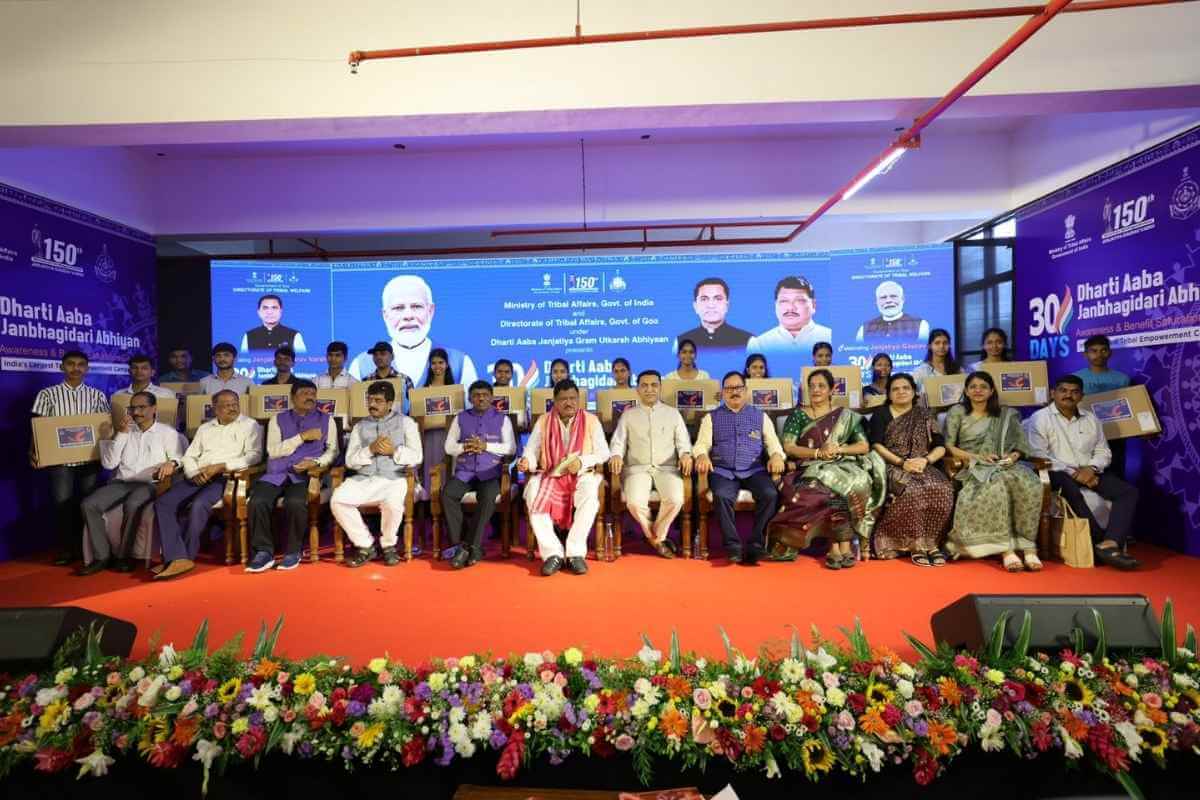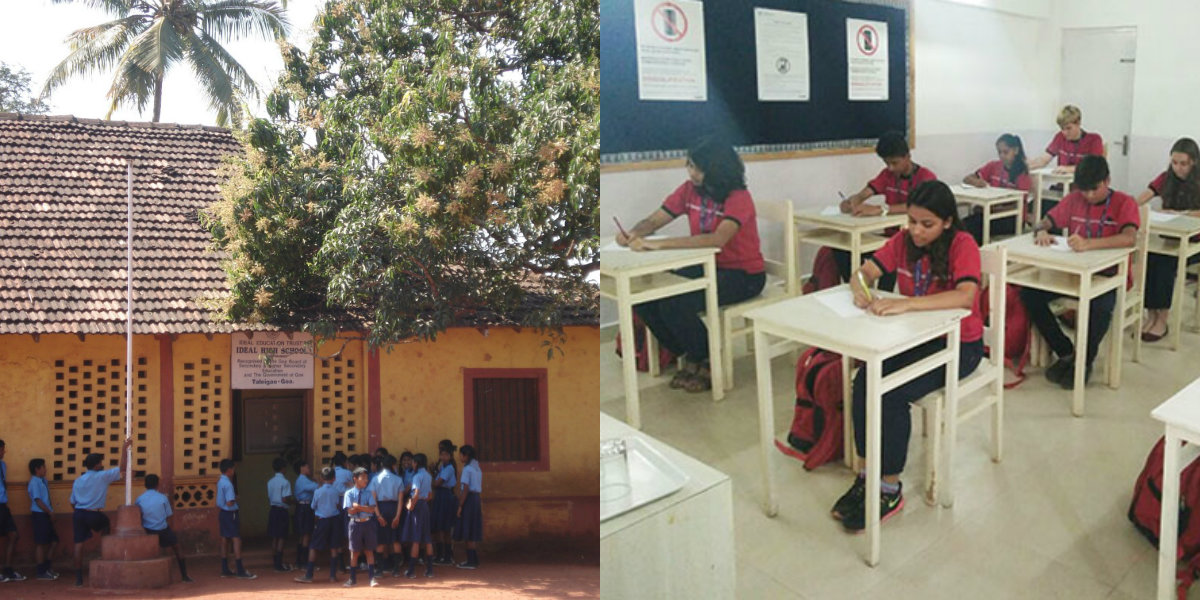The former Goa Minister of IT, Rohan Khaunte released a statement in the media on Saturday, July 10 on the health of the start-up environment in the state. The independent MLA stated that Goan entrepreneurs had become the victims of “unrealistic promises” and “hyped up funding announcements” made by the BJP Government in power.
‘Startup’s in Goa become victims of Unrealistic promises & hyped-up funding announcements by #GoaGovt. We can expect even more Grandiose but Never to Be Fulfilled Promises from #BJPGoa for Election 2022. Corruption, Mismanagement & Failed Promises have become hallmarks of GoaGovt,’ he tweeted.
This statement from the former minister raised several eyebrows; turns out, the Goan populace was not particularly benefited even during his tenure. Many pointed out his most significant contribution during his tenure- the introduction and promotion of a certain Gujarat-based media platform into Goa while paying little heed to Goa’s own budding media startups.
In light of this past experience, it seemed as though the jabs he made at the government in power were little more than the earliest waves of pre-election competition. This prompted Incredible Goa to speak to a senior source in the Department of IT, Government of Goa to gain more insight on the state’s performance in this area. Some details are furnished below…
Firstly, coming to the question of whether adequate funding provisions have been made or not, and whether it is really reaching the people- “The amount approved for the incentive under the Goa State Startup Policy 2017 is INR 1,80,58,717/-, out of which an amount of INR 1,16,98,717/- has already been disbursed to startups under various schemes,” the source revealed.
The Department of IT has also come up with the Seed Capital Scheme as part of the Goa State Startup Policy, 2017 as part of which, startups with a promising idea will upon approval, get a one-time grant of up to INR 10 lakhs. The money under this scheme is disbursed in three tranches or three stages, with startups availing an incentive of INR 4 lakhs immediately upon approval.
After the fulfillment of certain criteria following disbursement of the first tranche, startups are required to apply for the second and third tranches by first submitting a detailed progress report. “Till date only 15 applications for the second tranche have been received, of which 9 have been approved,” the source added.
In the 5th HPC under the chairmanship of CM Pramod Sawant, several other decisions were taken to ease the certification and disbursal process for Goan startups. This included the elimination of multiple certifications from the Department of IT, the DPIIT portal, etc., made possible by integrating the DPIIT Portal with the Startup Goa Portal. This is expected to significantly reduce the time and paperwork involved in applying for incentives.
It is also true that the new provisions are allowing for a direct pitch from startups to be heard at the High Powered level. Our source also confirmed that maximum financial incentives were disbursed to the startups in the year 2020-21, which was easy to the tune of over 65 lakhs rupees.
What is most striking about the developments in this area are the changes that have been made to the startup policy of the state. The new policy has been administratively approved and more importantly, it is an inclusive development; based on the feedback collected from the Secretary and Minister of IT, as well as other ecosystem enablers and stakeholders such as the incubation centers as well as startups. It is fair to expect then that the newly drafted policy is level and inclusive.
One of the most significant aspects of the revised policy are changes in the definition of ‘startup’ and ‘fresher’ itself, so as to be more accommodating and broad-based. Secondly, due priority has been laid upon women entrepreneurs, providing them with internship assistance up to INR 15,000 per month for a period of 3 to 6 months.
In view of this information, the scenario seems far from bleak, contrary to the image being touted by members of the opposition. However, for the sake of a more realistic and balanced picture, it is pivotal to also highlight some pervasive flaws in the system, not in Goa alone, but across the country.
To begin with, the procedure of scrutinization of startups by an Inter-Ministerial Board (IMB) to ascertain whether or not they are ‘innovative’ enough to avail tax benefits, has been one of the biggest stumbling blocks in this regard.
Stakeholders and experts are of the opinion that it is more meaningful to let the markets decide the level of innovation of the product and the subsequent failure or triumph of the startups, rather than having narrow-visioned IMBs decide their fate beforehand.
“The Interministerial Board (IMB), set up by the Department for Promotion of Industry and Internal Trade (DPIIT), is a roadblock of sorts and the major reason behind the slow execution,” said Mohandas Pai during a post-budget meeting with the Finance minister Nirmala Sitharaman.
In addition to this, it appears that in many cases, startups with no particular promise of novelty or innovation have also been approved. Therefore, many are suspicious of red-tapism and corruption involved. Besides, there is no “appeal mechanism” for rejected startups to make a case for themselves. The absence of provision of granting intellectual property rights to products such as software – which happens to be one of the areas Indian entrepreneurs excel at – is yet another shortcoming.
No surprise then that many of them find it more reasonable to incorporate in other countries where tax regimes and business environments are more conducive. Allowing patents on software and making all export income on intellectual property eligible to tax benefits will help.
There exist roadblocks at the execution level. In a recent Forum organized by Incredible Goa on the occasion of World MSME Day on June 27, this was repeatedly highlighted as a menace by the participating representatives from the startup community- lack of awareness about the schemes and provisions in place.
This has led to startups being driven from pillar to post in search of funding to revive their sinking businesses – an outcome of the pandemic. A recent TOI report stated that many of the certified startups that sought financial assistance from the state have been waiting for over 14 months for what was promised.
Many have complained about lack of even minimal assistance for instance, in areas such as marketing, which can make a big difference, especially for upcoming businesses. For instance, the Covid-19 pandemic offered Brizz Medical, a startup that provides home delivery of medicines from local pharmacies, an ideal opportunity to scale up, but the lack of funding to promote the startup stalled those plans.
“Startups have applied for seed funding, internet reimbursement, and salary incentives, but till the high-powered committee meets to approve the disbursement, the IT department cannot do much. IT director Ankita Anand said the government plans to hold the high-powered committee meeting in the first week of August to clear all pending incentives,” reported TOI.
Community participation together with an initiative by both government and opposition, seems like the best way forward rather than political mud-slinging. Especially now, given that the health of our startup sector is crucial for the revival of the Goan economy and employment for Goan youth, both of which have suffered a hard blow owing to the pandemic.


























